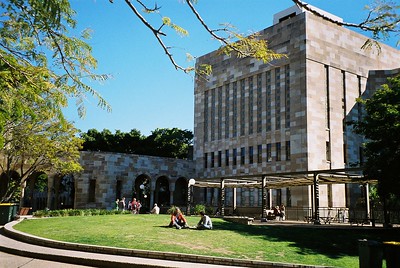This is the story of a somewhat sheltered homebody who is attracted to the notion of travel. I have spent most of my life in Melbourne and feel very at home here. But I can enjoy visiting other lands and have been working bit-by-bit on that.
As a child I barely ever left Victoria. I never particularly noticed this as we did travel rather a lot within the state. The family would spend many school holidays staying in cottages on hobby farms so I felt well travelled (compared with those kids who never get to escape suburbia). By the time I went to Germany to stay for a month with relatives (towards the end of uni) I had still only been to one Australian capital city - my own hometown of Melbourne. There I was answering questions of Germans (who think of Australia as an exotic frontier land) about things I had never seen and done. This struck me as a silly thing and so on returning home I resolved to see more of Australia. I have been working away on that slowly.
Sometimes one needs to be given a push in the right direction and impetus travel interstate came via my involvement in the Australian Democrats. I went to Canberra for a Young Australian Democrats (YADs) National Conference. I have since been back to the national capital a few times for party related things or just to visit friends. The ADs has helped me also visit Sydney and Adelaide whether for conferences or state elections. In all cases I have divided my time between interacting with party colleagues and with simply exploring the new city I'm in. Every city is the same and yet every city is different - I love just wandering alone and getting lost in all those tiny differences. But it is also fantastic to be shown around by locals (who will inevitably want to introduce you to the best pubs and confound you with local variations on the rules of playing pool).
Another more personal impetus for travel has come simply from friends wanting to go road tripping. Take a car. Put three friends into it. One drives. The second navigates and controls the music player. The third distributes the car snackfood (which occupies the fourth seat). Rambling conversations are had and tracks are sung along to. Small towns are pillaged for more snacks. Small towns are stayed in randomly once the car decides to lose an engine. Lakes of every primary colour are discovered by chance. I have travelled in such a manner with a number of friends but the most regular of such travelling mates has been Sean who enjoys improvising holidays as much as comedy sketches. Thanks to Sean I have returned to both Sydney and Adelaide and also been to Hobart.
I still had other state capitals to get to - Brisbane and Perth. As of last weekend I can say "one down and one to go". An Australian Intervarsity (IV) Choral Festival was held in Brisbane and I went along as a Monash Uni Choral Society (MonUCS) member for the last few days. This allowed me to go to a new city but have familar faces to fall back on and an organization arranging my billeting. I was a non-performing participant and while the others rehearsed for a concert I was free to wander.
It was sunny and temperate. How lovely it was for me to get away for a few days from the cold and wet of this Melbourne winter. How fun to wander along the river and get accosted by tame Ibises or to explore the mall dodging pedestrians who seem to only walk in straight lines.

How stimulating to wander the city and see structures made of a sandstone that seemed to capture and exude sunlight (like the Anglican Cathedral and parts of the University of Queensland).
But I cannot neglect to tip my hat to the choristers themselves. I am sometimes surprised at how quickly one can feel a strong affinity with what were strangers only a day or so before. The circumstances that allow this are important. Some interest-based gathering like a choral intervarsity gives you something in common that can serve as a
start to interaction. Locals prepared to make things happen in which conversations can flow (like riding a ferry between pubs) can make all the difference. We have all made friends in the past but it sometimes comes as a shock to discover it is something we can do anew.
So this sheltered homebody had a rewarding time at Brisbane IV and is mindful that a bit of risk-taking behaviour (even if it is just making your own way from the airport into a new town because the organisers never sent someone to meet you) is worthwhile. The next thing will surely be another IV.
Update: I have indexed my seven IVs as of 2013 in
this post.
Labels: Images, Nostalgia And Reminiscences


